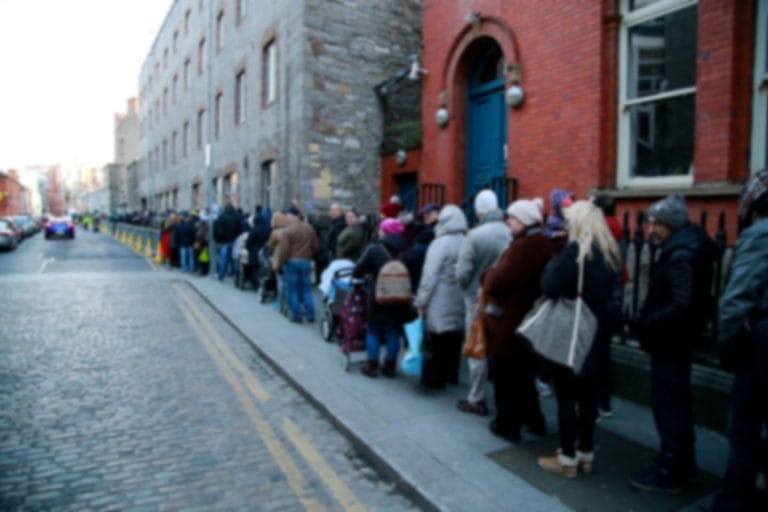When the government took the opportunity last month to take credit for Ireland having the only economy in the EU to grow in 2020, they neglected to mention that this ‘good news’ was not for the average person but that they were in fact, using the figures to bolster their already waning popularity.
This so-called growth in GNP was based on a net export growth- basically that we took in more money as a country than we spent- and is based on two key factors.
The first was an influx of demand for both IT and Pharma. Hardly any surprise there, for as the world went into lockdown, these two industries saw a global increase in demand.
But the second, more chilling factor, was that as a country we spent less. And that is now apparently clear why when we look at the latest news that one in four people have reported cutting back on food and utilities. The average Irish person does not have money to spend.
A study by the Saint Vincent de Paul has revealed some alarming figures on the spending habits of people, with 43% of the population reporting at least one of the following:
- 24% cutting back on food, heating or electricity due to cost.
- 22% using savings to meet ordinary living expenses.
- 14% falling behind on bills such as rent, mortgages, utilities or other regular payments.
- 7% going into debt (personal loan, credit cards) to meet ordinary living expenses.
The report also found that the most adversely affected groups were those vulnerable to poverty before the pandemic, including low-income families with children, lone parents, renters and people with disabilities. The figures revealed are stark and point to a truer picture of the situation than what the government would have us believe.
- Almost one-third of people have seen a decrease in household income
- 38% of people have said that their spending on basic household needs had increased
- 43% of people reported experiencing at least one form of financial strain
- 30% of those in difficulty prior to the pandemic are cutting back on food
The government is not listening. Instead of tackling these issues, we have seen Energia increase its residential electricity prices. We are witnessing the eviction ban being lifted too early, although 10% of renters are in arrears.
The moratorium on disconnections for household utilities needs extension beyond Level 5 lock-down. They are refusing to offer statutory conditions for sick pay- amid a pandemic. Parents have had to deal with increased food and utility costs due to school closures. People working from home have seen themselves having to invest in home offices and seen a similar increase in utility bills.
The message is simple. If we are to avoid a further increase in the poverty gap, the government must act to protect the people and not big business.
